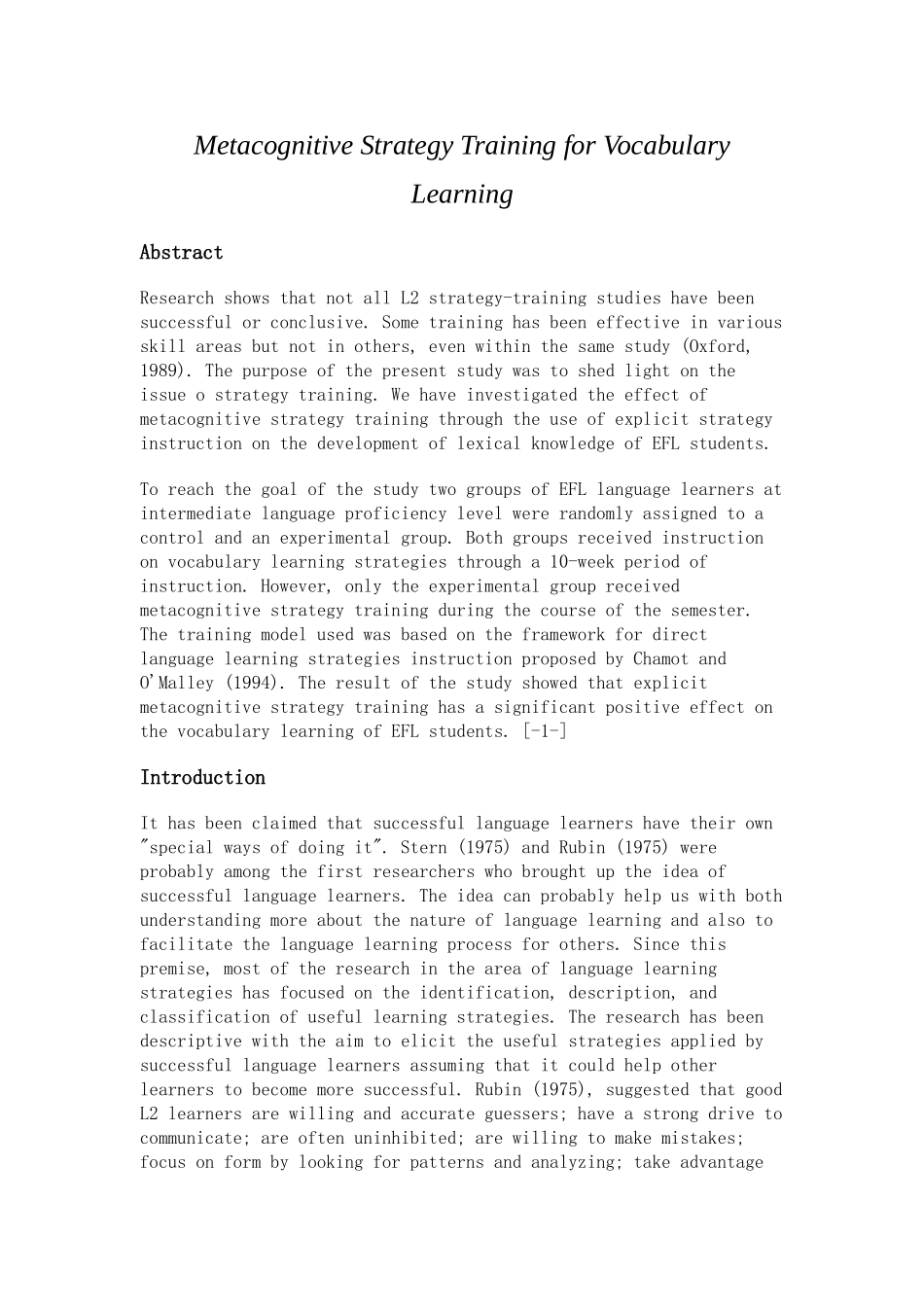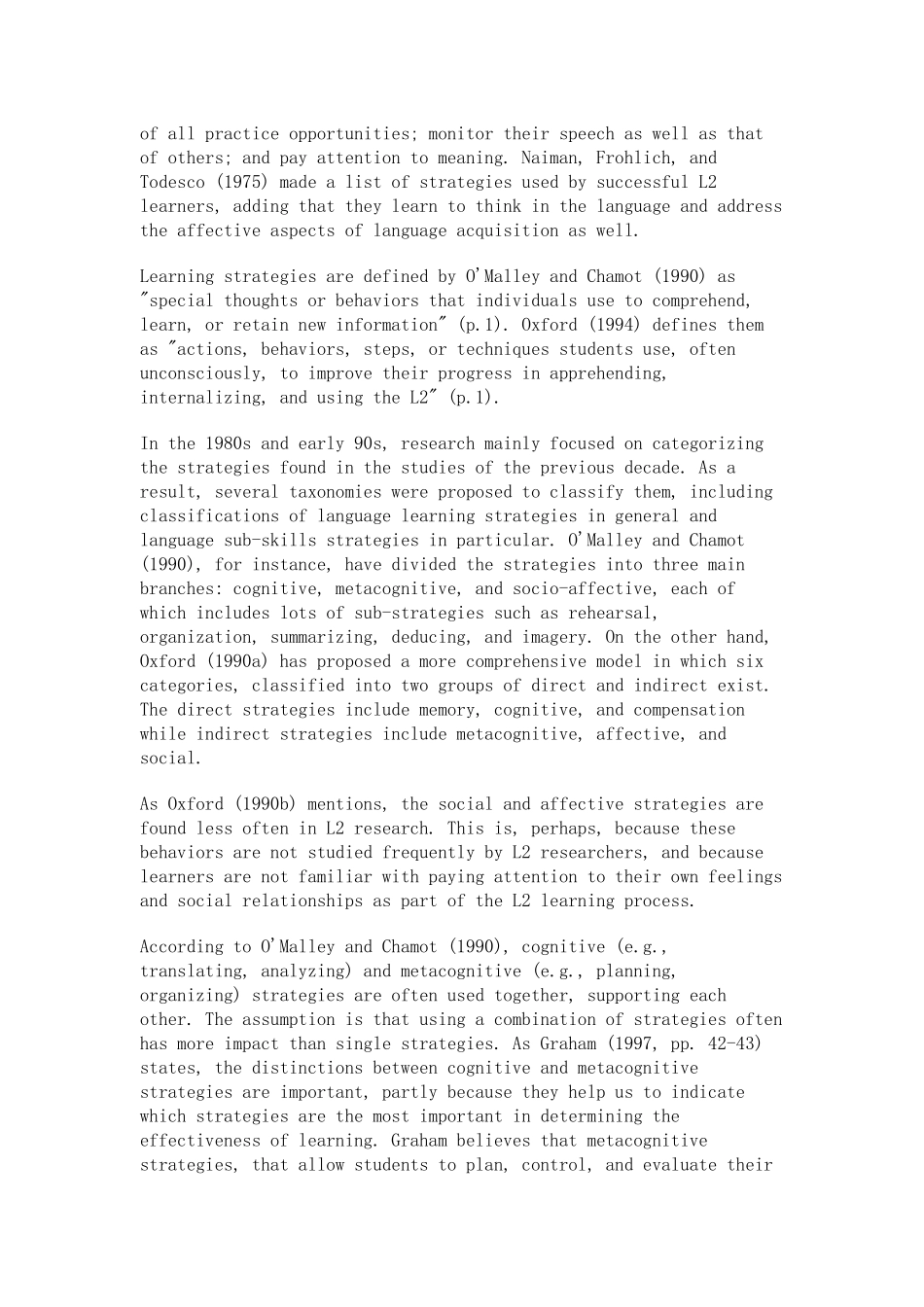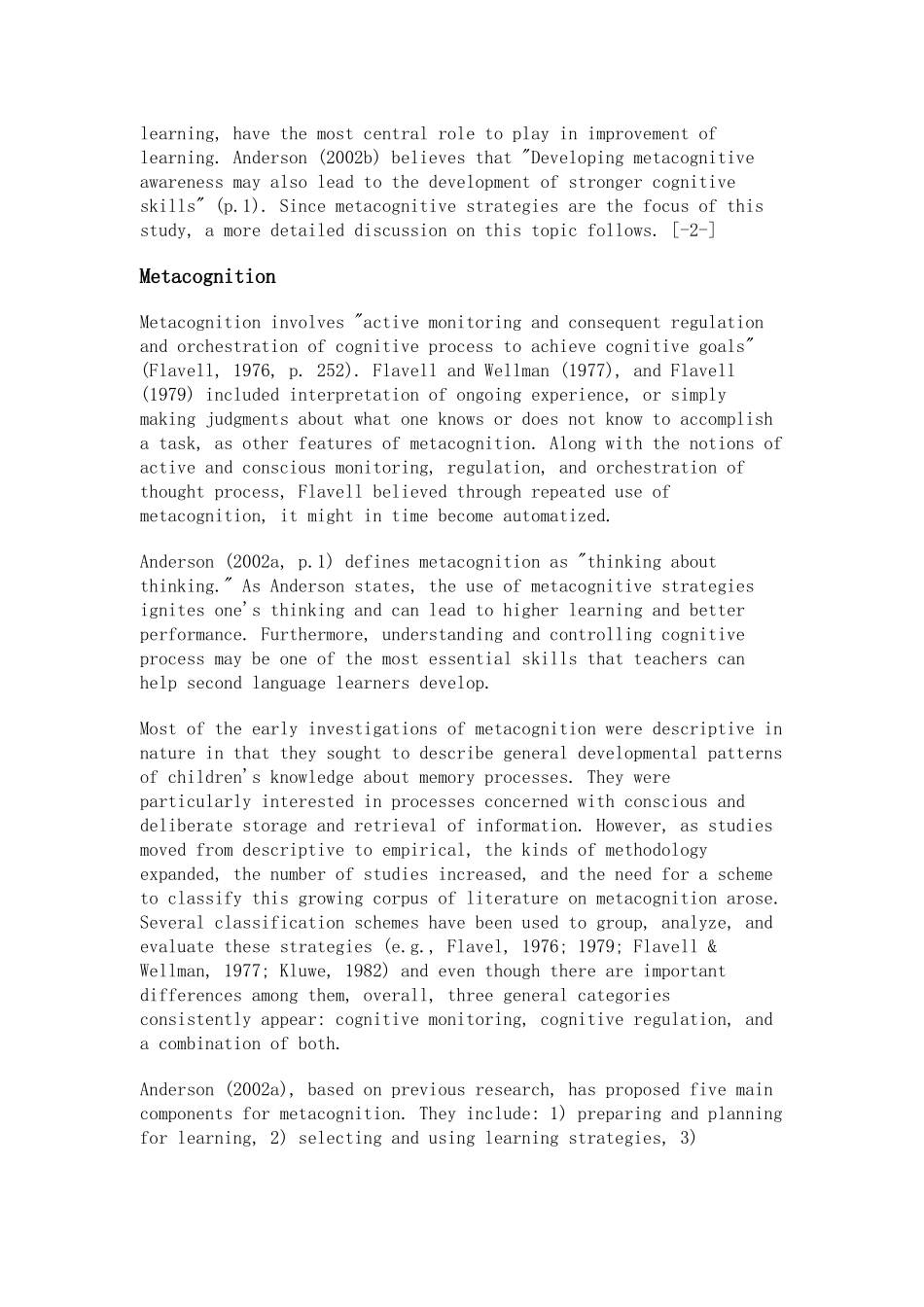Metacognitive Strategy Training for Vocabulary LearningAbstractResearch shows that not all L2 strategy-training studies have been successful or conclusive. Some training has been effective in various skill areas but not in others, even within the same study (Oxford, 1989). The purpose of the present study was to shed light on the issue o strategy training. We have investigated the effect of metacognitive strategy training through the use of explicit strategy instruction on the development of lexical knowledge of EFL students. To reach the goal of the study two groups of EFL language learners at intermediate language proficiency level were randomly assigned to a control and an experimental group. Both groups received instruction on vocabulary learning strategies through a 10-week period of instruction. However, only the experimental group received metacognitive strategy training during the course of the semester. The training model used was based on the framework for direct language learning strategies instruction proposed by Chamot and O'Malley (1994). The result of the study showed that explicit metacognitive strategy training has a significant positive effect on the vocabulary learning of EFL students. [-1-]IntroductionIt has been claimed that successful language learners have their own "special ways of doing it". Stern (1975) and Rubin (1975) were probably among the first researchers who brought up the idea of successful language learners. The idea can probably help us with both understanding more about the nature of language learning and also to facilitate the language learning process for others. Since this premise, most of the research in the area of language learning strategies has focused on the iden...


